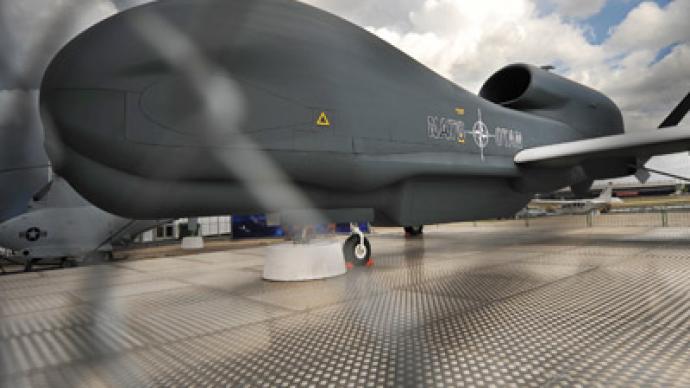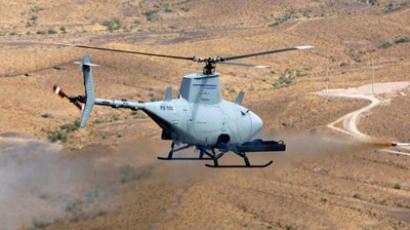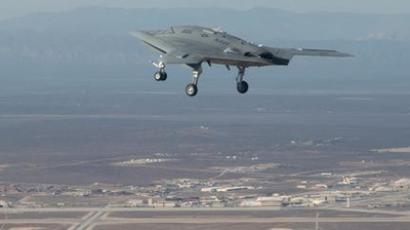Florida vies to be America's drone capital

Move over, Disney World. The demand for drones is expected to be so high during the next few years that the state of Florida is devoting a large chunk of funding in hopes of someday being the country’s hub for unmanned aerial vehicles.
With some experts saying that America’s airspace will host 30,000 drones by 2020, manufacturers of the unmanned robotic planes are pushing to produce as many of the UAVs as they can while interest is only beginning to be on the rise. Soon the United States will settle on just six test sites across the country to try out the tiny aircraft, though, and Florida officials say they hope they make the final cut.“The skies over Florida will look dramatically different in the years to come,” Space Florida President Frank DiBello told an audience of aerospace professionals earlier this June, reports Florida Today. By earmarking as much as $1.4 million towards accommodating a possible drone program, DiBello’s Space Florida hopes that the government will include the Sunshine State on their shortlist of federally-approved testing sites, a decision set to be determined by the end of the year."We're positioning Florida with a foothold in a new industry," DiBello told his board of directors, the outlet reports. "This is a thing that's good for the evolution of the aerospace industry in the state and we need to take that action and move on it."During the height of the space race, Florida was at the heart of America’s adventures beyond the Earth. With NASA being nixed significant funding in recent years and President Obama shelving the space shuttle program only last year, though, things have been quiet in the clouds as of late. As America’s space program suffered a serious blow with the end of shuttle missions, many of the aerospace experts that spent decades working in Florida have since moved elsewhere in the hopes of finding employment.Aerospace technician Giovanni Pinzon told RT last year that even with NASA working on a lot of technology that the public is not even aware of, a lack of jobs in the industry was causing many Floridians to consider going elsewhere.“As people [are] going to other parts of the country, its going to be hard to get those skills back for when the space program takes off again,” Pinzon told RT.Only a year later, though, Florida Space’s Dibello says that securing a spot in the country’s domestic drone program might be able to change all of that. Right now the UAV industry generates around $6 billion annually and that number is expected to double within the decade. By finalizing plans for a domestic drone program with FAA authorization, the Association for Unmanned Vehicle Systems International says they expect 23,000 new jobs by 2025. Dibello hopes that a good chunk of those jobs will go south to his state.Beyond the business of drones, though, opponents of the unmanned craft are worried that developers are rushing to get the drones off the ground, though — both figuratively and literally. Florida Space is spending a significant amount of money to wow the Federal Aviation Administration in hopes of making the cut of the final six FAA test sites. In the meantime, though, drone development is still in its primitive stages.By 2013, the FAA will have its test sites selected and the agency adds that they expect to see 10,000 commercial drones up in the air within five years. Trevor Timm of the Electronic Frontier Foundation says that the statistic will come more closely to triple that figure, but the government has yet to quite figure out all of the kinks.Earlier this month, a University of Texas professor used a homemade spoofing device to send signals to a UAV owned by the college and hijack the craft right in front of the Department of Homeland Security. His test came only weeks after a domestic drone valued at millions of dollars crashed and burned only miles from Washington, D.C.“In five or ten years you have 30,000 drones in the airspace,” Todd Humphreys from the University of Texas at Austin Radionavigation Laboratory tells Fox News. “Each one of these could be a potential missile used against us.” Ben Gielow, the government relations manager and general counsel for the Association for Unmanned Vehicle Systems International trade group says that fears aren’t too far-fetched. Given the stealth construction of the UAVs and their ability to spy from high in the sky, many people have pushed for the US to halt its domestic drone plans until privacy policies are fully implemented. "Ultimately, we have the same concerns about privacy that everyone else has," Gielow tells Florida Today. "However, we believe that this new technology offers an incredible potential for the public good."














